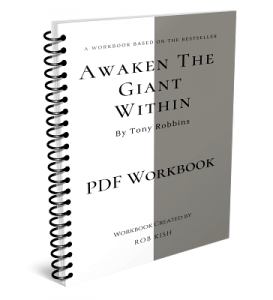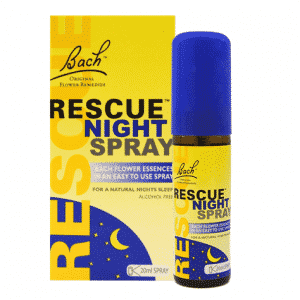Let’s face it, we’ve all been there, that mid-afternoon craving, the dinners that aren’t complete without a sweet finish, the late evening crunch, and the uncontrollable urge to fill cravings when stress takes over your life. This can also be applied to alcohol for those of you who are constantly tempted by that ice-cold beer or a soothing glass of wine.
It is not the act of eating or drinking alcohol that is the issue of discussion, it is the reasoning behind those actions. Since if you are not eating or drinking for any other reason except a feeble attempt to elicit a feeling that you perceive as more positive or beneficial than what you currently feel, THAT is the problem.
Given that we are dealing with emotions here, your emotional distress may go very deep for some of you. This may take weeks, or possibly months of active re-conditioning to really take back control, while others may come to an abrupt end after having created a massive paradigm shift in the mind. Putting a stop to emotional eating or food cravings is not a quick fix, it takes a keen understanding, a conviction to change, and daily conscious reinforcement.
Hunger vs Cravings
Understanding the difference between true hunger and an emotional food craving is absolutely pivotal to your long-term success towards eating intuitively. Most people that are emotional eaters have little to no distinction between the two.
Follow the next step to help decipher between the two.
How To Control Emotional Eating With A Journal
Logging your cravings into a journal is an amazing way to start understanding how your emotions and habits affect your cravings. You can really start to decipher between emotional cravings and true hunger by using this tool.
Keeping a journal will encourage you to explore your thoughts, emotions, habits, and relationship with food in a way you have never done before.
I highly recommend you journal for a minimum of 2 weeks. This allows enough time for patterns to emerge. Nearly all of our daily actions can be traced back to a certain pattern. Once you are aware of the pattern, your brain picks up on this.
How To Control Emotional Eating Without Eating
Emotional eaters use food in an attempt to elicit a certain emotion they would like to experience. This is why it is paramount to log your cravings in order to understand what those emotions are. This will bring awareness to what you were previously oblivious to. If you haven’t already, download the journal from the link above, this will make much more sense when you take a look at the journal.
Common emotions that trigger emotional eating:
- Frustration (common from work stress)
One major flaw with using food in an attempt to re-balance your emotional state (beyond the obvious of adding numerous empty calories) is that any positive feelings that may arise from your emotional binge are TEMPORARY!
What happens an hour later when the high wears off and you go right back into that same undesired emotional state? Since you haven’t any other way to elicit the emotion you striving for other than stuffing your face with food, you will repeat the same pattern.
Breaking The Emotional Eating Pattern
STEP 1 – Get Leverage
The first thing you need to do is get real with yourself. Write down all the ways that your current emotional eating pattern will cause you misery in the future when it comes to your health, relationships, self-image, career, and any other area of your life that will be affected. Don’t beat around the bush, and don’t butter it up. If you think your current pattern has the potential to take 20 years off your life then write it down! BE REAL!
If you do not get enough leverage on yourself you will not succeed. If you do not feel a compelling motivation to change the instant after you read what you wrote down then you do not have enough leverage on yourself. In other words, you need a stronger reason to inflict change.
STEP 2 – Replace The Pattern
Write down 15 things (or more) you can do that will generate the desired emotions you discovered from your food log. None of these things can include eating ANYTHING! Sure, you can cook, as cooking is a fantastic therapy for many people. Don’t be eating your delicious meal as your cooking it though! And no, baking a sugar-filled dessert does not count! Cook a meal that will add years to your life, not take them off.
Spontaneous Outcomes
This strategy relies on breaking the pattern through rearranging certain tendencies, or habits. For example, if you have a tendency to stay up late, say 1 hour later than you would like to go to bed, and this also tends to be a time when you do much of your late-night snacking, simply go to bed 1 hour earlier. By doing this you will effectively break the current pattern of associating snacking within that specific hour prior to bed, and an association with whatever you typically do within that hour before bed. If you completely eliminate both triggers then there is nothing left to associate late-night snacking with.
You can apply this strategy to any other evening tasks that are part of your ritual such as when you eat dinner, when you shower, when you watch t.v when you call your mother when you walk the dog when you go to the gym etc. Completely re-arrange when you do all these things, mix it all up, it will throw your mind for a loop, wondering what you’re doing in the shower when you are typically watching t.v and snacking at that time. There is a good chance the craving will pass since you broke your evening ritual pattern.
The way this works is you are taking advantage of the fact that humans are creatures of habits and patterns, and manipulating this to your advantage.
This is such a simple strategy that it can easily be overlooked. It is extremely powerful and so easy to implement!
How To Stop Emotional Eating Through Extreme Measures
Before reading ahead, you must understand that what I am about to discuss is not for the faint of heart. It is a drastic attempt to kick a particular food from your diet for good. It has the ability to be highly effective if putting an end to your emotional, and even habitual eating habits for good.
The 24 Hour Strategy
The strategy here is actually very simple, you may even chuckle after you read it wondering if this guy is actually serious.
Let’s say chocolate is the bane of your existence and you must kick it from your diet for good. Buy all of your favourite chocolates, if it’s just one then buy 1 kind if you have 5 different favourites buy all 5. Make sure you buy more than enough to supply yourself as the only food you will be eating for 24 hrs.
Yes, that is right, eat those chocolates (or whatever food it is you’re trying to kick) for 24 hours straight. You are allowed no other food. You will get sick (literally) of your chosen food by the time those 24 hours are up.
The Premise Behind This Strategy
Most people can relate to this: Is there a certain food you cannot eat anymore because you have gotten sick off of it at one time? Maybe it was food poisoning, maybe you had the flu, maybe you drank too much alcohol, etc. The reasoning doesn’t necessarily matter, because your brain associates being nauseated with this particular food it has been conditioned to reject even the mere thought of it.
Your brain is currently wired to gain pleasure from eating your chosen food. The objective of this strategy is to rewire your brain to associate disgust with your chosen food.
Exercise is A Strategy – And It Biochemically Changes You
If you exercise or have exercised in the past, and you are mindful of your reactions post-exercise you will notice a significant reduction or elimination of cravings. This effect can last the entire day if you work out in the morning.
For those people who tend to reward themselves after meals or are late-night snackers, go for a 10-minute brisk walk and watch your craving disappear into thin air.
Exercise has been shown to reduce Cortisol (our stress hormone), increase Dopamine and Serotonin (which is why you feel great after a workout), and improve insulin sensitivity (which will stabilize your blood sugar levels). If you have unstable blood sugar due to a lack of insulin sensitivity, which is the gateway to Diabetes, you will tend to crave after your blood sugar drops rapidly.
Meditation Is A Strategy – It Also Biochemically Changes You
Meditation is gaining a very strong evidence-base towards its’ positive effects on the brain. One of the most notable effects is the ability of meditation to significantly reduce stress and change our state very rapidly.
The rapid change of state can instantly reduce your stress, and in turn, reduce your stress hormone Cortisol and raise your feel-good hormones Dopamine and Serotonin.
A great time to do a quick meditation is immediately after arriving home from work. This is typically when stress levels are at their highest and can last well into the evening affecting your quality of sleep.
For those of you who have never tried meditation, there is a fantastic app that you can use for free to guide you along the way. The app is called InsightTimer, you can click on the link below to download it for free.
Download: InsightTimer
And Remember…
You Must Take Action!
Good Luck!
If you have any questions feel free to contact me, I would love to help you out!










































